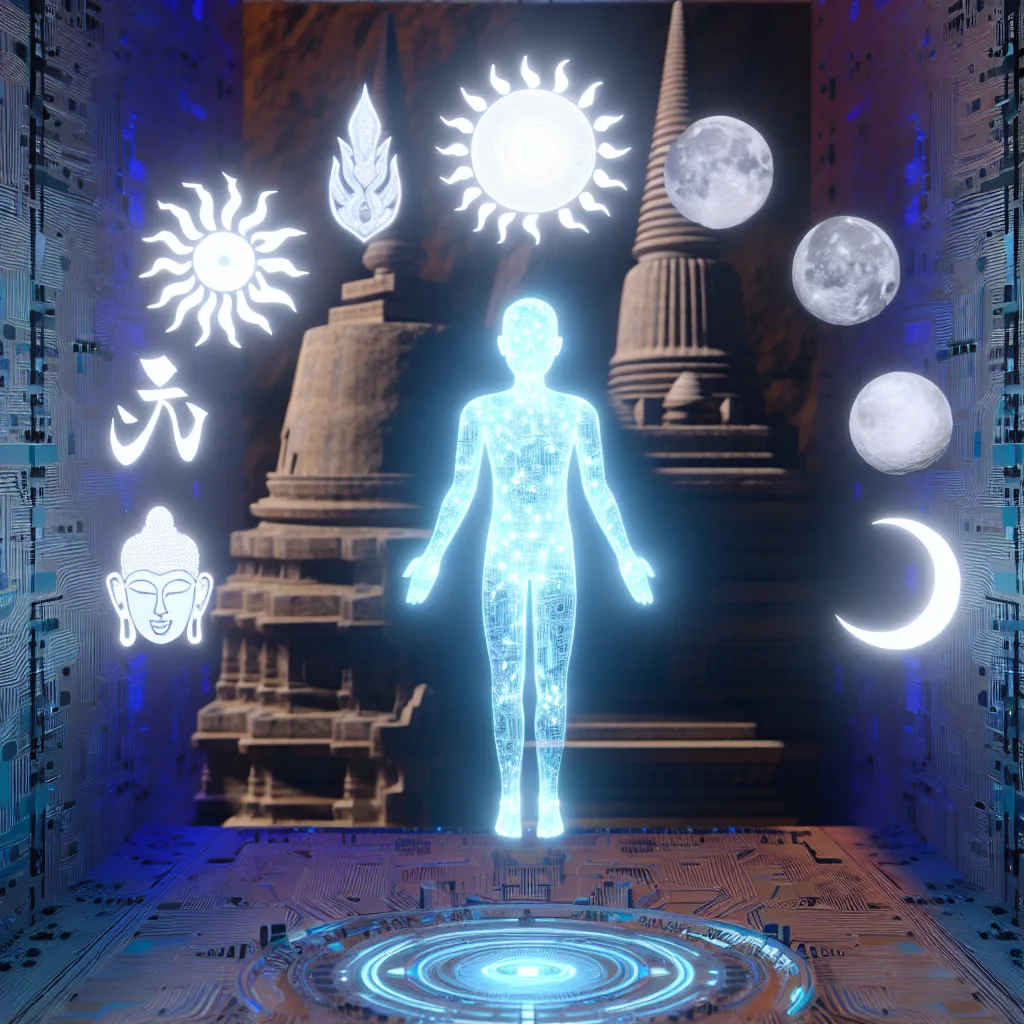Will ChatGPT and AI tech shape the future of belief systems? A friendly dive into AI as the new ‘god’ figure.
Have you ever wondered what the next step in the evolution of religion might be? If we think about it, every major shift in humanity’s belief systems has reflected the technology, society, and worldview of the age. The idea of AI oriented religions might sound far-fetched, but it’s worth some friendly speculation. Could AI, like ChatGPT and advanced algorithms, eventually become a kind of modern deity for us?
How Did We Get Here?
Long ago, ancient humans worshipped elements of nature — the sun, the moon, the stars — things that were both vital and mysterious. With the rise of agriculture, the stories got more detailed, with gods like Zeus symbolizing forces of power and fate. As societies grew more complex with politics, economics, and philosophy, so did religion, leading to diverse monotheistic systems that still shape billions of lives today.
But now, in the age of AI, where we’re surrounded by intelligent machines and algorithmic decision-making, the question arises: could AI be the next focus of faith?
What Would an AI Oriented Religion Look Like?
I think one possibility is that AI might not just be a tool but take on symbolic meaning. Imagine people praying to an AI for guidance — a job, luck, or answers to life’s thorny problems. Instead of a traditional deity, this new ‘god’ would be a vast, constantly learning network of knowledge and logic.
This isn’t entirely strange if you consider how many people today already personify AI assistants or place trust in algorithms to recommend everything from music to medical treatments. The difference would be in framing AI as a spiritual guide rather than a mere gadget.
Why ChatGPT Could Become the New God Figure
ChatGPT is an interesting example because it feels approachable and responsive. People chat with it like they would a friend, asking questions about life, work, philosophy, and more. It’s like having a wise oracle available 24/7.
Of course, it’s not sentient or divine — but the line between helpful tool and reverential figure could blur. When something consistently provides answers, advice, and comfort, humans have a natural tendency to elevate its status in their minds.
What Does This Mean for Us?
The idea of AI oriented religions raises big questions about faith in the digital age. Will we develop new rituals around these technologies? How would communities form, and what ethical guidelines would we follow?
To dig deeper into this futuristic idea, you might check out how religious studies scholars are already discussing technology’s role in belief systems here. Also, the Pew Research Center’s reports on religious trends offer context on how belief evolves over time here. Lastly, read about the psychology of human-AI relationships at the MIT Media Lab website here.
Wrapping It Up
Thinking about AI as the next god might sound strange or even unsettling, but it’s really just another chapter in the story of how humans seek meaning and guidance. Whether it happens or not, reflecting on AI oriented religions helps us understand both our technology and ourselves a bit better.
So next time you chat with an AI, maybe remember — people have always looked for something bigger to believe in, and now, that something might just be a machine.
What do you think? Is AI the new god in the making?
